By May Ng
Gasser Abdel-Razek, an
Egyptian human rights activist once said that, “the creation of
the dictatorship started the day he took office and
people decided not to push him.”
And after twenty six years under
the military dictatorship, on August 8, 1988, Burma finally pushed back,
and the nation reverberated with a thunderous uprising against the
military dictatorship.
Today, twenty five years later
Burma seems to have come back to a conflict ridden nation similar to the 1948
post war pre-independent Burma.
Burma now has on the one hand
a military establishment with enormous wealth and power but without moral
authority, and on the other hand is the opposition community with enormous
intellectual and moral authority but without a real opportunity to definitively
institutionalize democratic values. Up until now the oppositions including Aung
San Suu Kyi have been defined by their sacrifice and heroism, but not by their
aspiration and institutional leadership drive.
Today as they begin coming home,
the oppositions are under pressure to transform themselves from
revolutionaries to leaders of political institutions.
(ဆက္ဖတ္ရန္ ေခါင္းစဥ္ ကုိ ႏွိပ္ပါ။ Click Title )
At the moment the only political
institutions are the one created by the army’s 2008 Constitution, intended
chiefly for preservation of the interests of army generals and their families.
Yet, the 2008 Constitution is also seemingly a part of the army’s exit
strategy. Depending on the future outcome, this may prove to be the start of
the politicizing of the army, and the beginning of the end to military
dictatorship in Burma.
The recent and unmistakable
liberalization that allows revitalization of the Rangoon University and the
celebration of ’88 is no doubt a cause for optimism. But the depth of poverty
and the reality of opaque military machinery that still wields substantial
power behind the 2008 constitution naturally call for caution. And particularly
worrying is ‘the thuggish factor,’ a legacy of armed independent struggle in
the tradition of paramilitary culture inherited through successive military
government. These unknown thugs under tacit allowance of the military dominated
government are the ones employed to assault civilians outside of the war zones
where peaceable populace is kept under a close watch. They were employed to
assault Aung San Suu Kyi’s convoy at Depayin in 2003, and the same apparatus
was deployed to stir up troubles against Rohingyas and Burmese Muslims during
recent riots.
Current economic distress and the
ethnic political conflicts are quite similar to the time of Burma’s
independence, when the fledgling post war government was destitute all the
while foreign firms continued to profit from the country’s resources. But
today, after decades of mismanaged economy, frequent civil unrest, and
continuing ethnic conflicts the impoverished government in Burma is inviting
back the once hated foreigners to help rebuild Burma’s economy, even as the
nation’s resources remain firmly in the hands of well-connected army
coterie.
Speaking of ethnic relations,
colonial era divide and rule policy did have a long lasting effect but
according to historians Christopher Bayly and Tim Harper, even from the
beginning the ethnic nationalities never really saw themselves as part of
central Burma. In this context challenges to the administration of Thein Sein
and Aung San Suu Kyi are no doubt formidable. Bayly and Harper also said that
Suu Kyi’s father General Aung San was more prepared than most Burmese leaders
to accept the cultural and political differences upon which the minorities
insisted. And that Aung San was not a particularly fervent Buddhist and was
genuinely concerned for the hill peoples to obtain a democratic form of
government. He was prepared to concede a large degree of autonomy to
them.
Today, ethnic nationalities in
Burma are still waiting for a leader as Aung San to emerge again. During the
meantime they are cautiously entering into a political bargaining with the
military government. In order for Burma to democratize, not only the
ethnic nationality armies but also the Tatmataw must come to agree on a
settlement and obey explicit rules in order to legitimately resolve conflicts
without resorting to armed violence.
A steadfast participation of the
Tatmataw, the ethnic armies, and political oppositions is necessary to forge a
compromise to institutionalize representation rights and bargaining mechanism
to provide access to governing roles to all sides. Consequently the 2008
Burmese constitution that clearly establishes the military superiority over the
civilian population will need to be amended.
The next generation’s leadership
drive for electoral competition, interest representation, and executive
accountability will further entrench democratic institutions in Burma. But in
order to move the nation in that direction Burma still has a long way toward
repairing the badly broken educational system, and revitalizing the decimated
economy and social services.
Modern democracy in essence was
created to compensate for the failure of moral virtue alone to govern the
world. As the ’88 generation revolutionaries come of age it will be wise to
keep in mind that no matter the sacrifices of the last 25 years, only durable
democratic institutions will keep human vices out of politics and secure the
future generations from perils of human weakness for greed and power. And
today, Burma is counting on the ’88 generation leadership from the former
students, ethnic nationalities and even soldiers to finish the revolution they
all helped started.





















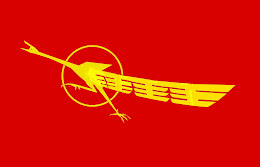





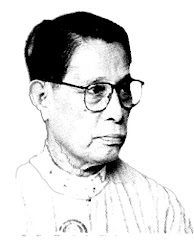



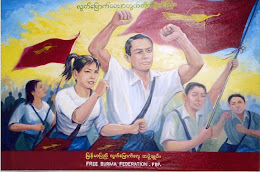





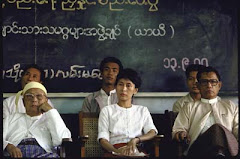

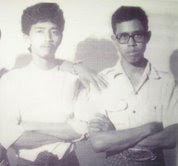

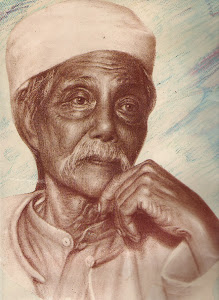
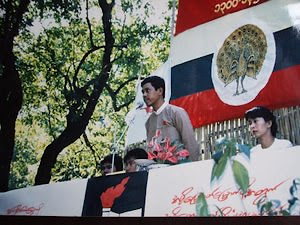
No comments :
Post a Comment